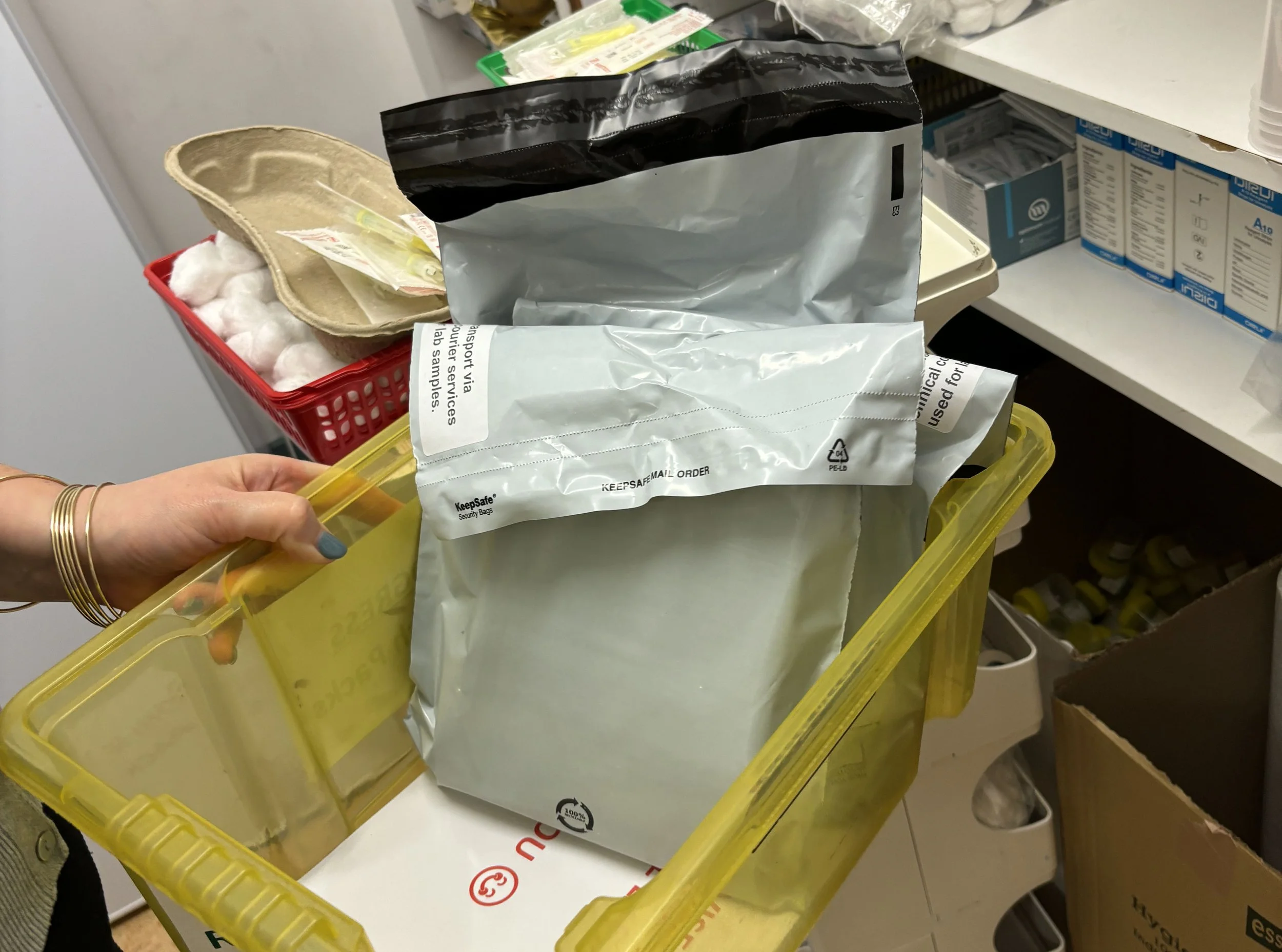Integrating service design approaches into an NHS research trial
The NHS were running an implementation study in GP surgeries to better understand how a ‘personalised medicine’ service could be integrated into the routine prescribing of common medicines. They were looking for user research and service design support to learn from the study and recommend how to implement a scalable live service.
This project was delivered in partnership with Videha Sharma and Hannah Kirkbride.
Pharmacogenetics, or ‘personalised medicine’ has the potential to revolutionise prescribing and save the NHS millions. It involves testing people’s genes to ensure they are prescribed the right medication for them. While the scientific research on this is extensive, use of the testing in routine care is currently limited to cancer and rare disease.
The NHS North West Genomic Service Alliance were running an academic implementation study in GP surgeries around the UK to better understand how a ‘personalised medicine’ service could be integrated into primary care to inform the prescribing of common medicines. This was a research based activity which focused on actively recruiting people to take part. We supported the work by undertaking user research and service design to make recommendations, based on the experiences of patients and practice staff, around how a scalable, live service could be implemented into routine care in future.
User research with patients and staff.
While an implementation study isn’t a live service it was a good opportunity to learn from the experience of patients and staff who were directly involved. The study itself focused on more quantitative outcomes, our work looked to gather qualitative feedback via in-depth interviews and observation in GP surgeries.
We interviewed a small sample of patients who were part of the study to better understand their experiences of taking the test, receiving the results and having their prescription changed (or not). We also visited three GP surgeries and spent time with GPs, practice managers, nurses, admin staff and reception staff to better understand how the study was working in a primary care setting and what the key areas of consideration would be when looking to move to live service delivery and scaling.

Detailed and strategic recommendations.
The implementation study was focused on the detailed process of testing patients, returning results and prescribing accordingly. Through our work we were able to offer recommendations around both the detail of the service journey and the strategy for scaling the service.
At a detailed level we looked at the logistics of taking and posting the test, how results would be returned and actioned along with who would have access. However, it was difficult to design at this level of detail when key strategic decisions still needed to be made. Things like policy on whether patients would only be tested when they needed a specific medicine or how lab capacity would be scaled. This project demonstrated the importance of close working between the design of frontline services and the development of national strategy and policy.
Behaviour change was also an important consideration with this work as the service is a new approach within healthcare. For patients, use of language plays an important part in the delivery of the service and affects people’s understanding of the testing. For staff, a key barrier was integrating an ‘unknown’ into a familiar conversation when GPs are already time poor.

Provocations for a future service.
As part of the work we mocked up some of the key service touchpoints to demonstrate the importance of particular recommendations and bring the service to life in a routine care environment. Posters and leaflets were a useful way to highlight the shift in language required to inform patients when bringing a new service into routine care.
“As doctors and researchers, we are often overly focussed on the science and the detail; forgetting that innovation in healthcare is ultimately about improving people’s lives. Emma’s perspective has not just added value to the project but left a lasting impact on ways of thinking and problem solving.”
- Videha Sharma, Clinical Innovation Lead at University of Manchester NHS Foundation Trust
Implementing a live service.
Following the completion of this work, we were fortunate that some new NICE guidance was published. This guidance recommends genetic testing to guide treatment for people who have just had a stroke or TIA (transient ischemic attack or ‘mini stroke’). What this guidance provided was the impetus needed for the NHS to implement the first pharmacogenomics service for people with a common condition.
We proposed a pilot project to work with four hospitals to design a minimum viable service together, share learnings between the sites then run and evaluate the service for three months before iterating and producing guidance for scaling. This work will conclude in April 2025. For more information visit the NHS North West Genomic Service Alliance website.
